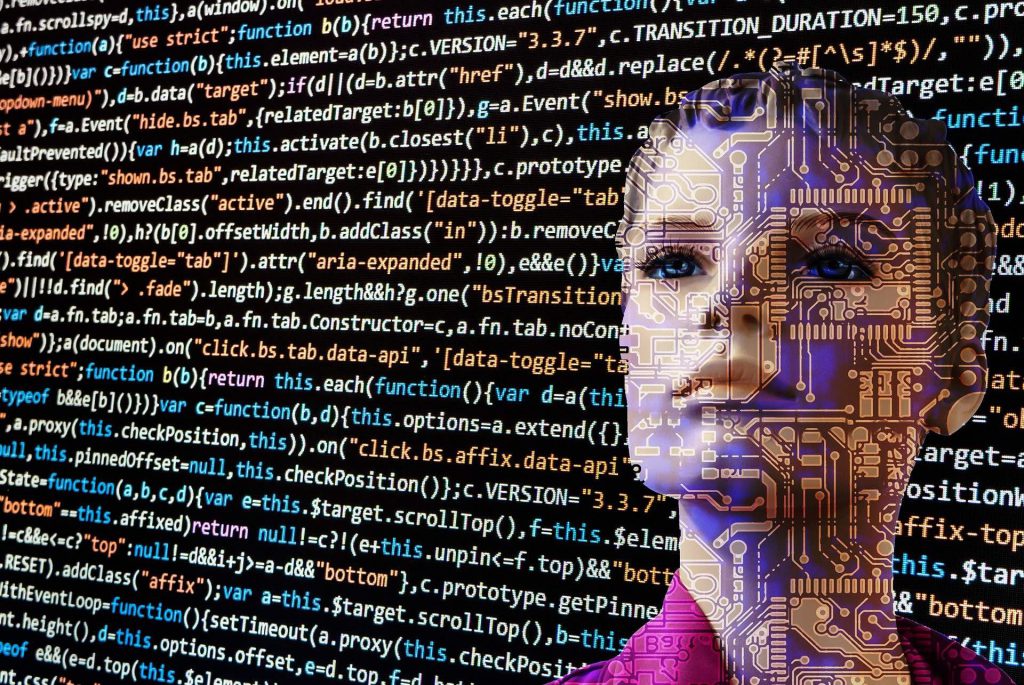(9 min read)

The 4th industrial revolution.
Futurologists say we’re at the beginning the fourth industrial revolution. This one is driven by technology. Like steam engines were to transport, and apps are to banking, automation, artificial intelligence, connectivity and robotics are to now: life as we know it is changing rapidly.
We’re living longer, working longer, our global climate is under threat, the pace of change is accelerating and how we communicate is transforming.
And that’s before any pandemic accelerated this change.
The way we live and work – the very ways we operate as humans – seems to be changing at an increasing rate. As Professor Yuval Harari points out in his seminal book Sapiens, when Shakespeare looked at the London skyline, he could say with fair certainty that it was unlikely to change significantly during his lifetime. Yet your children will witness substantial change of their skylines.
Our media ecology has also transformed. We have moved beyond text, to a place where digital animation, augmented reality and gaming are normal.
Coupled with this is the environmental credit crunch. The way we currently live is not one we can go on doing forever: it is not sustainable. I’ve been doing some work with David Attenborough’s film ‘A life on our planet’ and have been struck with real optimism by his message- of hope, that there is a way forwards, and its simple. (If only it was compulsory for all shops to play it on screens at the long checkout queues, and all billboards to post his four imperatives for future survival. It’s wonderful.)
In a nutshell, your children will have to learn do more, with less; to live and operate within a different set of parameters than we did when starting out.
And we are living longer. Along with our children, we will spend longer in our careers in order to fund these long lives. With this longer working life, there comes a pressure to stay relevant: to continue to learn and adapt in order to keep up with all the tech-savvy youths entering below us, and with the pace of change.
I’m in my late-30s and work with some wonderfully energetic, shiny, early-20-somethings. It was with rather a shock I realised that there’s this great big chunk of culture and life that has happened whilst in a bubble of babies and research and start-ups. ‘Dope’? Yup they say that. And they know about 1000% more about social media, technology, activism, environmental priorities and operate within a whole world of popular culture that rarely permeates my world. They see an issue, and they act: they can put together a professional-looking vlog in hours, calling others to action across the globe. They are amazing, and I am so glad our future will be in their hands.
Lifelong learning.
Apparently, 25% of what we know today will be obsolete in two years’ time. That’s according to Dr Kameel Kahn, Stanford-based social entrepreneur, whose job it is to study the future. When you stop and think, it means it’s probable that many of our children will work in jobs that don’t yet exist. At least not in their current form.
It’s quite likely that universities will move to a subscription format, where your ongoing membership allows you to attend the courses that suit your need. In fact, this already exists in other formats: for example MasterClass is a subscription-based streaming platform for anyone to watch or listen to hundreds of video lessons taught by experts in their fields, be it business and leadership, photography or writing. The How to Academy has likewise introduced a monthly plan to access the thoughts of the biggest thinkers.
It’s hard to think of a career that is the least likely to change. Perhaps a dry-stone wall builder. Or an artist. But if you want to advertise your skills, you’ll probably need a good online presence. A shepherd? Nope. Aside from complex fertility technology, there now exists robotic sheepdogs. Don’t believe me? Watch this:
The only competitive advantage an organisation will have is an ability to learn faster than the competition, as Ismail Amla, Capita Consulting’s growth officer says. And it’s this jewel of understanding that I get most ranty about: why on earth aren’t we taught how to learn? Since we’re all going to be working for a rather long time, and quite likely alongside our children (if not our grandchildren too), and our success depends on how quickly we can adapt, surely it’s obvious that we should be teaching people how to rapidly find out information and become expert enough to apply it properly?
Don’t our bosses want us to learn? Don’t we want schools to teach our children to learn? In all the schools my colleague and I have introduced ‘the science of learning’ to it’s been a roaring success. Children as young as five are more than capable of grasping the basics of brain plasticity and the importance of learning from mistakes, persistence and spaced learning (more of this in another article).
The importance of being human.
As the world becomes more computational, and vast amounts of big-data need analysing and interpreting, the machines will pick up the slack. They will churn out statistical summaries of the colossal information pouring in from the billions of devices ticking and clicking away from around the globe.

But it is humans that will draw conclusions from the data; actual people that will make inferences and decisions. Your children will have to know how to link this computer-generated information with their knowledge of social behaviour and how humans think. Where their target audiences hang out, which office designs stimulates the best collaboration, the most efficient way to transport coffee beans from Yemen, or how to collaborate with different professional disciplines on the building an affordable solar farm.
Our economy is shifting from an industrial one to a knowledge one, according to Dr. Tony Wagner, co-director of Harvard’s Change Leadership Group. The ‘net generation’ is very differently motivated to learn. Where we spent our teenage weekends making mix tapes off the radio, our children are vlogging from micro-studios in their bedrooms, reaching global audiences and spreading ideas, like we did Nutella (wearing our Gap hoodies).
According to the Google Future of the Classroom report, just 44% of young people in the UK feel prepared for employment, and 90% of Australians say that public education should value practical vocational skills more. Parents across the globe are looking for a more holistic education, including general life skills.
We all know exams open doors. But how successful will your child be, once they step through that door?
Do you have any futuristic views? Back to the Future was correct in predicting that in 2015 we’d have drones, mobile payment tech, biometric unlocking devices and video calling. The film also got some things wrong: sadly, we don’t travel by flying car or hoverboard (although skateboarder Tony Hawk is currently testing a prototype), and the fax machine has almost completely perished.
What do you think our children will be doing differently? How should we prepare? hello@drtorrancejenkins.co.uk